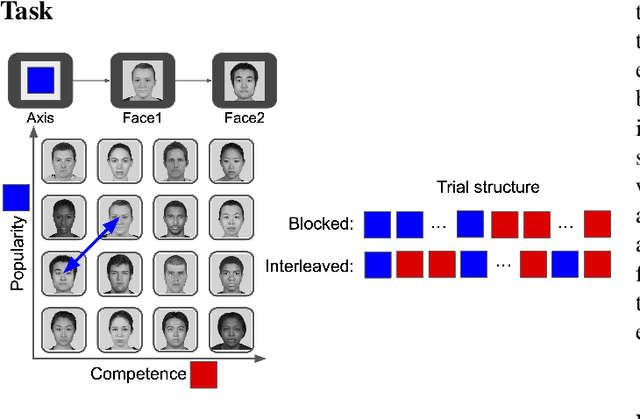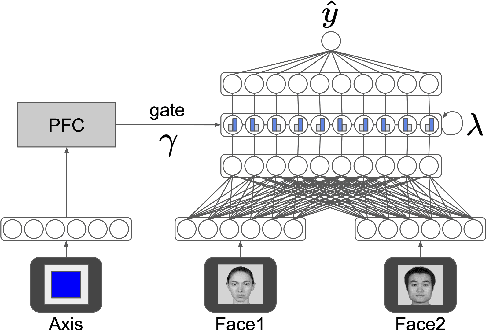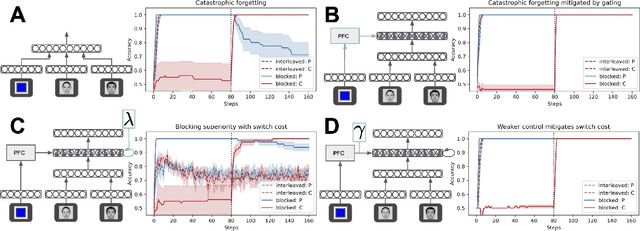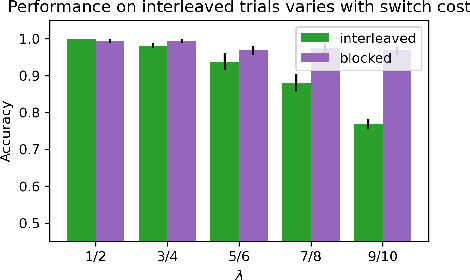Maryam Zolfaghar
A Neural Network Model of Continual Learning with Cognitive Control
Feb 09, 2022



Abstract:Neural networks struggle in continual learning settings from catastrophic forgetting: when trials are blocked, new learning can overwrite the learning from previous blocks. Humans learn effectively in these settings, in some cases even showing an advantage of blocking, suggesting the brain contains mechanisms to overcome this problem. Here, we build on previous work and show that neural networks equipped with a mechanism for cognitive control do not exhibit catastrophic forgetting when trials are blocked. We further show an advantage of blocking over interleaving when there is a bias for active maintenance in the control signal, implying a tradeoff between maintenance and the strength of control. Analyses of map-like representations learned by the networks provided additional insights into these mechanisms. Our work highlights the potential of cognitive control to aid continual learning in neural networks, and offers an explanation for the advantage of blocking that has been observed in humans.
Complementary Structure-Learning Neural Networks for Relational Reasoning
May 19, 2021



Abstract:The neural mechanisms supporting flexible relational inferences, especially in novel situations, are a major focus of current research. In the complementary learning systems framework, pattern separation in the hippocampus allows rapid learning in novel environments, while slower learning in neocortex accumulates small weight changes to extract systematic structure from well-learned environments. In this work, we adapt this framework to a task from a recent fMRI experiment where novel transitive inferences must be made according to implicit relational structure. We show that computational models capturing the basic cognitive properties of these two systems can explain relational transitive inferences in both familiar and novel environments, and reproduce key phenomena observed in the fMRI experiment.
 Add to Chrome
Add to Chrome Add to Firefox
Add to Firefox Add to Edge
Add to Edge